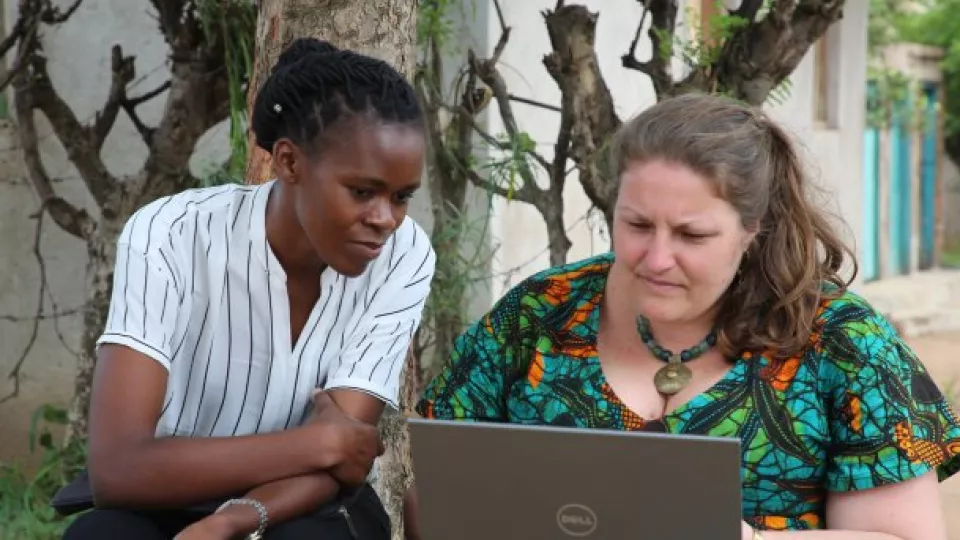As a young woman in Tanzania, having your period is associated with great challenges, myths and secrecy.
“You can’t talk about menstruation or show blood as this is taboo. You are not allowed to carry water or pick certain crops. You sometimes use the same sanitary pad for days, and vaginal infections are common”, explains Sara Gabrielsson, researcher at LUCSUS, who for many years has studied sanitation issues in Tanzania.
Girls on their period often stay home from school, fall behind and therefore perform worse. Some even drop out.
“In school, it is difficult to change pads and you might leak blood. Some days, you don’t have any protection but are forced to use leaves, mattress stuffing or cardboard pieces. There’s nowhere for you to discard your used pads and no water for washing your hands after changing pads. If the boys find out that you are on your period, you will be teased, especially if there is blood on your school uniform”, says Sara Gabrielsson.
She decided to investigate whether there were any menstrual products that could make life easier for the girls. Together with Master’s student Bertha Mhepela and a local Tanzanian organisation in the rural area of Shirati, she performed a trial of three types of menstrual products: the menstrual cup, disposable sanitary pads and washable fabric pads. Each product was tested for three months by three groups of 30 girls between 11 and 18.
The review, which is the first of its kind, showed that the menstrual cup was perceived as most positive. The girls testified to a great sense of freedom:
“I can even play football”, “I can go to school” and “I feel free. I can go outside”, were some of the responses.
“Although this is merely a first study, the results are crucial. The menstrual cup can truly make a difference for the girls’ health and opportunities for education. It gives them a chance not to fall behind and allows them to continue to perform well even after they begin menstruating”, says Sara Gabrielsson.
The greatest benefit was that no one in the girls’ surroundings needed to know when they were on their period: the girls were able to attend school without having to be afraid of leaking and getting stains on their clothes. Because the menstrual cup only needs to be emptied every eight hours, the girls could also manage their periods at home, and avoid having to change pads in school. Furthermore, they no longer had to find ways to dispose of their sanitary products, which otherwise must often be done with great secrecy.
The fact that the menstrual cup has a life span of several years also means that it has much less of an environmental impact than, for example, disposable pads.
“This aspect is particularly important in a country like Tanzania, which has no developed infrastructure for waste management. Pads and other menstrual products have a greater environmental impact compared to countries in the West. But today, pads are not even factored into the amount of waste because of the extreme taboo surrounding menstruation. And that in itself is a problem.”
The next step for Sara Gabrielsson is to expand her research on how to improve menstrual hygiene for girls and women in Tanzania. She and her colleagues are working with other organisations to set up distribution of the menstrual cup in the country, and on an information campaign targeting young girls.
“But first, we must break the silence. It’s all about talking, educating and discussing the issue with girls, boys and men, decision-makers and organisations. Otherwise, we won’t progress”, she concludes.
The research was conducted within the scope of the SIDA-funded capacity-building programme Sustainable Sanitation in Theory and Action (SUSTAIN), in collaboration with the University of Dar es Salaam, Tanzania.

